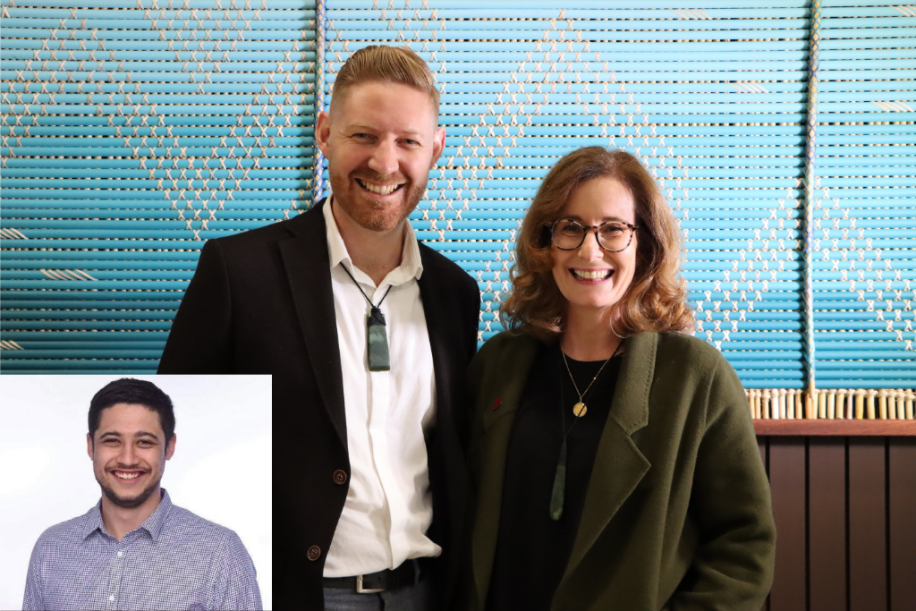Ngāti Whātua Ōrākei Legal Team pictured (L-R): Preston Rawiri (Law Clerk), Jason Cooper (Senior Legal Counsel), and Natasha Strong (GC).
Can you give us an overview of the legal team at Ngāti Whātua Ōrākei and how you support the work of the Trust?
We’re the first in-house legal team at the Ngāti Whātua Ōrākei Trust. Ngāti Whātua Ōrākei are the tangata whenua of Tāmaki and the Waitematā and the Trust looks after their collective affairs for the benefit of its members – who are the descendants of Tuperiri.
We’re a small but perfectly formed team of two with the addition of a casual law grad from time to time for particular projects. Since we set up the Trust’s greenfields legal function we’ve worked hard to quickly become trusted advisors. Every in-house legal team has its own special sauce and we believe ours is our embrace of te ao Māori - it informs both our ways of working and our approach to how we deliver our legal product. It’s made alignment of the team’s annual strategic and work plans with Ngāti Whātua Ōrākei’s strategic goals and aspirations for its members an easier task.
What are the issues that keep the team awake at night and how do you plan to address these?
Apart from the usual issues of not having enough resource or hours in the day to achieve everything we’d like to achieve (that must sound familiar to everyone in the in-house community…), as a team we’re concerned about keeping up with the volume and fast pace of law reform, to make sure the Trust can engage effectively with it. We’re also really concerned about the divisive tone of some of the public discourse in relation to Māori outcomes, co-governance and other related kaupapa. Disappointingly, it always seems to ramp up in the lead up to an election year.
In-house legal are known to 'put out fires before they begin'. How does an in-house team mitigate and foresee risk before it arises?
For us it’s all about relationships and about knowing our business, the industry and, between us, the law inside out. We think this, combined with the special sauce we mentioned earlier, helps us to ‘look around the corners’ to foresee risk before it arises. Key to this is turning up - we consciously turn up to significant hapū events including hikoi, tangi, hui, and karakia to build strong enduring relationships across the group and hapū. It also keeps us connected to the kūmara vine in case we miss something in our day-to-day mahi.
Mātāpono (values) are at the core of the organisation – how do they impact how the legal team communicates and acts?
Just as we consciously turn up, we also consciously seek to embody Ngāti Whātua Ōrākei values in our ways of working. These values help ground Ngāti Whātua Ōrākei in tikanga Māori. It sounds quite circular but, because of this grounding, they also provide our team with a lodestar for our own embrace of te ao Māori, our cultural competency upskilling, and being comfortable with the space we occupy as Pākehā lawyers in an iwi organisation. Alongside the mātāpono, our team has also adopted three key behaviours to help us deliver our strategic plan - ‘innovate’, ‘collaborate’ and ‘deliver’.
How do you see the role of the modern in-house lawyer changing in practice and what are the skills and attributes you look for when recruiting?
For us, as it is for most in-house legal teams, subject matter expertise and being a great lawyer are just table stakes these days. Whilst we need these skills, we will always recruit for fit and having great soft skills and being purpose driven and values led are crucial. Robustness also helps given the political dynamic in iwi organisations and the sometimes hefty weight of the kaupapa we’re involved in.
